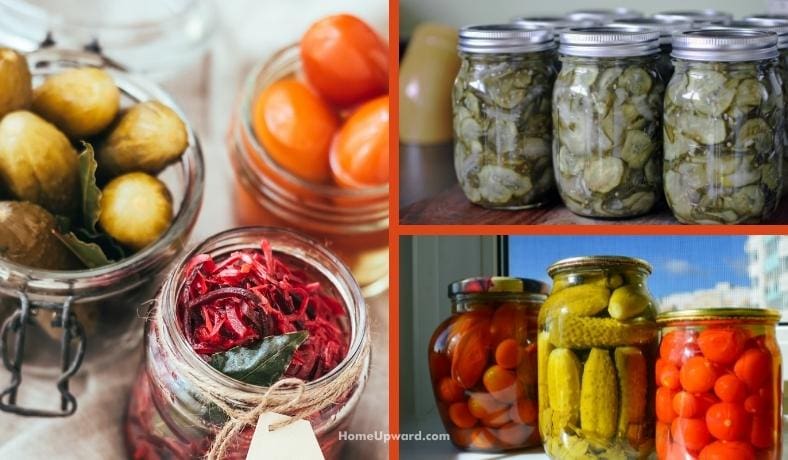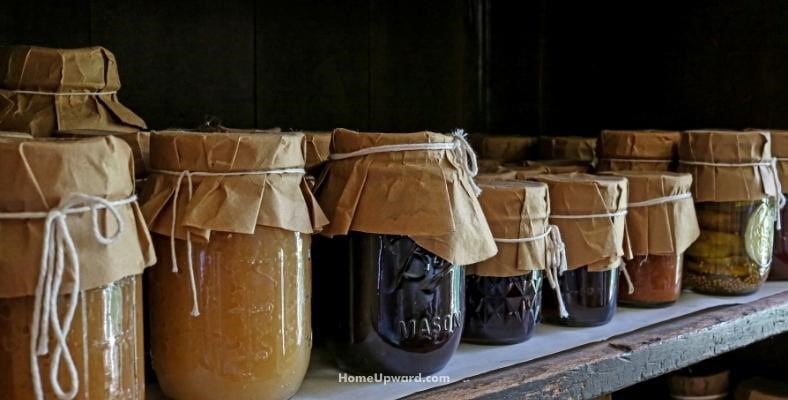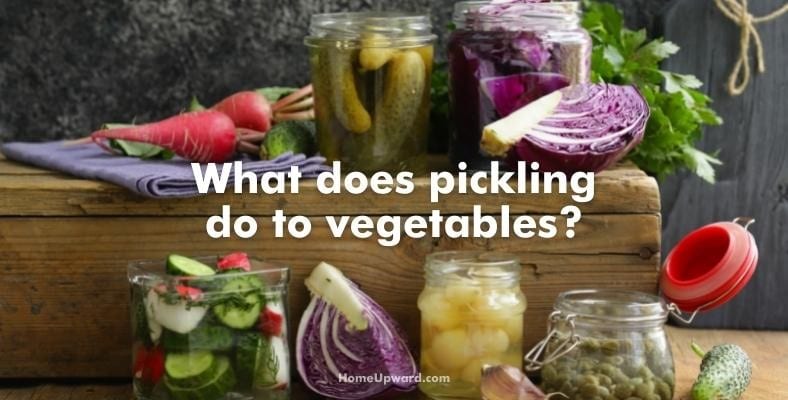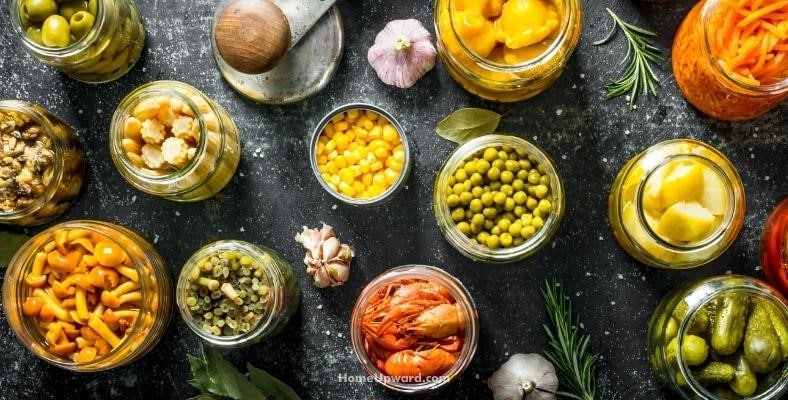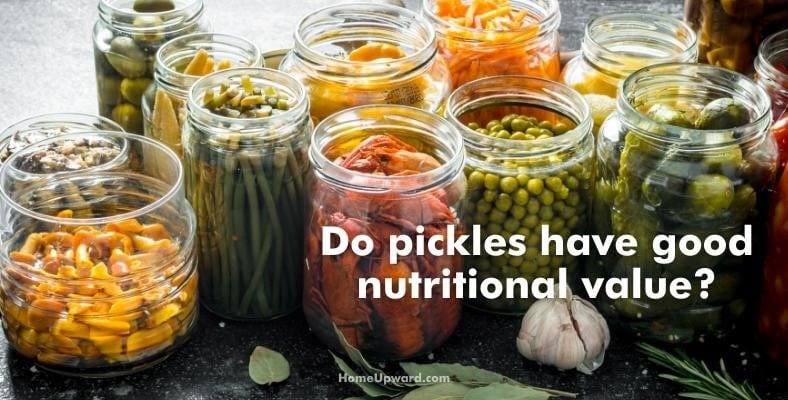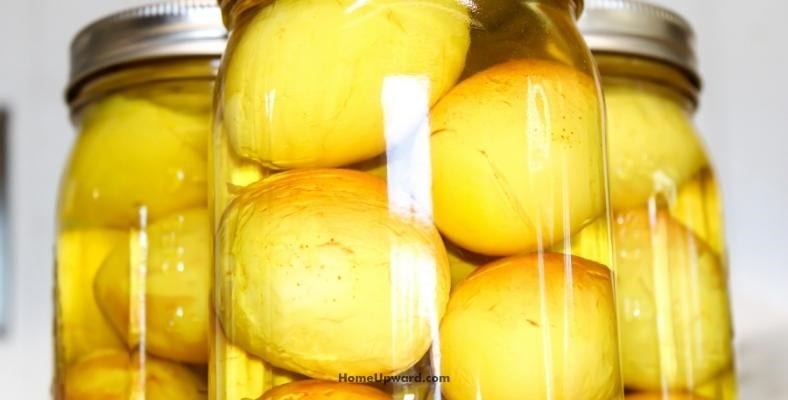Contents
Does Pickling Remove Nutrients?
Pickling food results in some pretty exciting adjustments to its flavor and nutritional profile.
The short answer is that pickling may change the nutrient content of food slightly. Also, it’s just a bit more complicated than a “yes” or “no.”
Food nutrition facts about pickling
The carbohydrate, fat, and protein level will not substantially change, but beneficial bacteria break down the naturally occurring sugars in the pickling process.
This change to the sugar content can affect how the food is digested due to the high level of probiotics introduced to the gut during digestion.
Cucumbers are, of course, the most commonly pickled food, and the pickling process gives the cucumber much greater flavor variety. Pickled cucumber is available in sweet, sour, dill, bread and butter, and several other types, each unique flavor profile.
Nutritional facts about pickles
When cucumbers are pickled, they gain more fiber, vitamins, sugar, and salt.
Dill pickles are the lowest in calories, rivaling the calorie content of the fresh cucumber. While, unsurprisingly, sweet pickles have the highest sugar content and number of calories.
But both types of pickles are loaded with fiber which is beneficial for constipation and high cholesterol. Pickles are a great source of vitamin K, which the body uses for bone and cartilage health.
What Does Pickling Do to Vegetables?
Pickling is used to store foods and usually results in a change to their favor and texture. Pickling also allows good bacteria to flourish while preventing harmful bacteria from contaminating the vegetable and causing spoilage or rot.
This technique is accomplished by using either vinegar or salt brine.
Pickling has been around for several thousand years and was the primary way that fruits, vegetables, and other foods were preserved before the invention of electricity and freezing seasonal vegetables became common.
How Does Pickling Work?
To ferment cucumbers into pickles, the cucumbers are completely submerged in a brine solution made of water, salt, and other spices and left to sit for a few days covered by a clean towel.
The solution around the pickles will begin to release tiny bubbles. The longer the cucumbers sit in this solution, the more tart they become.
Pickling vs Fermentation Differences
Pickling and fermentation are two related food storage processes, and fermentation can undoubtedly be used for pickling, but not all pickles are fermented. Eating fermented foods increases the level of good bacteria in the digestive tract.
These bacteria not only help our bodies to break down food into compounds that the body can use, but they also provide the necessary support to the immune system, keeping us healthy.
Can Pickled Food Be Bad for You?
Pickled vegetables lose very little of their nutritional benefits as they go through the pickling process.
However, the sodium content will be dramatically increased. This is an important fact to keep in mind for those with blood pressure issues, problems with kidney function, or other dietary restrictions.
Do Pickles Have Good Nutritional Value?
Pickles are a fantastic dietary source of vitamin A and vitamin K. Our bodies use vitamin A to support our immune systems and reproductive systems.
Vitamin A also supports the heart, lungs, and kidneys and helps keep our eyes healthy.
Vitamin K is an ingredient in the protein that makes for blood clotting. Vitamin K is also a crucial part of the build-up and breakdown process for bones and other connective tissues.
Vitamin A supports the daily renewal of skin cells and is used in many beauty products to help smooth the skin.
Pickle juice benefits
Humans have used pickle juice as a cure for upset stomachs for thousands of years, and in more recent times, the health benefits of pickle juice have been further studied. Pickle juice has a well-earned reputation as a cure for muscle cramps and high blood sugar.
The juice has also become a favored beverage among those following a ketogenic diet.
Are Pickles as Nutritious as Cucumbers?
When foods are cooked, they can cause damage to heat-sensitive nutrients, making them unusable by the body, and cucumbers are no exception.
The answer here is basically “yes”; by using the pickling process, cucumbers (and other vegetables) can be stored for extended periods without sacrificing their nutrient value.
How Long Are Pickled Eggs Good For?
Pickled eggs make a delicious, nutrient-dense snack. The pickling process substantially extends their safety window, but they will not last forever.
When stored in the refrigerator, pickled eggs can be expected to remain safe to eat for three to four months, provided they;re tightly sealed. Not bad!
The most common reason for pickled eggs spoiling is the jar’s lack of a proper seal. When the pickling process is complete, the eggs should remain in the pickling solution for three to four weeks to ensure that they have enough flavor.
It’s extremely important that the jar is tightly sealed during the process.
What type of pickling jars are best?
Glass Mason pickling jars are best for pickled eggs, but plastic is acceptable if the jar can be tightly sealed. Metal should never be used since it can cause an adverse reaction with the pickling liquid.

